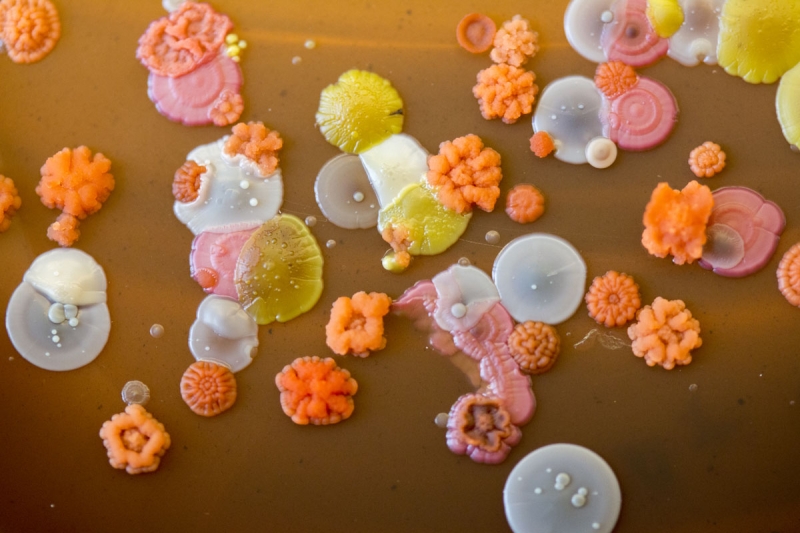Our unique library contains more than 45,000 natural product extracts, primarily built over the years through expeditions by LSI faculty member David H. Sherman, the former director of the center.
These extracts derive from sediments, cyanobacteria and sponges from all over the world — including Papua New Guinea, Costa Rica, Panama, Lake Erie, Lake Huron, Nepal, Peru, Brazil, the Middle East and Antarctica.
The bacteria used to prepare the samples are phylogenetically characterized using 16S rRNA gene sequence analysis, cell wall composition and fatty acid analysis, menaquinone characterization and genome sequence analysis followed by natural product gene cluster mining.
New compounds are being added to the library all the time.
The LSI's Natural Products Discovery Core will assist researchers with follow-up activities after identifying natural products hits.



